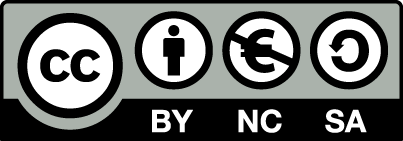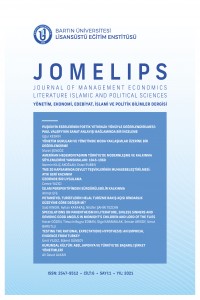Abstract
Bu çalışmamızda İslami bakış açısıyla İslam ekonomisinde sürdürülebilir iktisadi büyüme ve kalkınma incelenmektedir. İddiamız, İslam’ın sürdürülebilir iktisadi büyüme ve kalkınma ilkelerinin kapitalist toplumlara nazaran insanın huzurunu sağlama ve hayatını kolaylaştırma noktasında daha tutarlı, mantıklı ve yararlı sonuçlar doğurduğudur. Kapitalist ve materyalist düzene nazaran İslam düzeninin sürdürülebilir iktisadi büyüme ve kalkınmayı tesis etmedeki farklılıkları araştırılarak ortaya konulmaktadır. Bu da çevre ve doğal kaynakları salt maddi yararlarının sürdürülebilirliği noktasında dikkate almak değil aynı zamanda onların Allah’ın lütfu, nimeti, mektupları, delilleri, isimlerinin tecellisi ve aynı zamanda ahiretteki nimetlerin numuneleri olduğu bilinciyle israftan kaçınan, çevreye ve içerisindeki varlıklara değer veren ve maddi büyüme ve kalkınma kadar manevi gelişime de önem veren kapsamlı ve insani bir yaklaşımı ortaya koymak ile gerçekleşebilmektedir.
References
- Abumoghli, I. (2015, 01 18). Islamic Principles on Sustainable Development. ecomena: http://www.ecomena.org/tag/sustainable-development-in-islam/ adresinden alınmıştır
- Aburounia H, Sexton M (2006) Islam and sustainable development, https://www.irbnet.de/daten/iconda/CIB_DC27030.pdf
- Akthar, M. (1993). Modelling the Economic Growth of an İslamic Economy. The American Journal Of İslamic Social Studies, V:10, N:4 USA.
- Ansari, M. (1994). İslamic Perspectives on Sustainable Development. The American Journal of Islamic Studies, 394–402.
- Aström, Z. H. (2011). Paradigm Shift for Sustainable Development: The Contribution of Islamic Economics. Journal of Economic and Social Studies, 73-84.
- Chapra, M. (1993). İslam and Economic Development. İslâmabat, Pakistan: The İnternational İnstitute of İslamic Thoughts and İslamic Research İnstitute.
- Çayıroğlu, Y. (2014). İslâm İktisadının karakteristik özellİkleri. İslam Hukuku Araştırmaları Dergisi, 149-183.
- Efe, A. (2018). İslama Göre kamu Yönetimi. Anemon, 163-175.
- Fakir, S., (2002), “The Nation of Public goods, Sustainable Development and Islam”: Islamic Economics: 1-4, www.islamic-world.net/economics/notion
- Gundolf, K., & Filser, M. ( 2013). Management Research and Religion: A Citation Analysis. Journal of Business Ethics, January 1,, 177–185.
- Hasan, Z. (2006). Sustainable Development from an Islamic Perspective: Meaning, Implications, and Policy Concerns . Islamic Economics Journal .
- Hill, L. E. (1989). Cultural Determinism or Emergent Evolotion: An Analysis of the Controversy Between Clarenve Ayres and David Miller. Journal of Economik Issues, Vol. XXIII, No. 2, 465-471.
- Bruntdland’s Report (1987), World Commission on Environment and Development.
- Jha, Y. (2013). Examining the Meta-Principles of Modern Economics and their Implications for Islamic Banking and Finance. Islamic Sciences, Vol. 11, 169-181.
- ISESCO (2005), “The Islamic World and the Challenges of Sustainable Development”, Culture and Communication, www.isesco.org.ma
- Izzi-Deen, M., (1990), “Islamic Environmental Ethics, Low and Society” Ethics of Environment and Development, pp64-173.
- Khalid, F., (2002), “Islam and the Environment”, Social Economic Dimension of Global Environmental Change, John Wiley and Sons Ltd, Vol.5, pp332-229.
- Kamaruzaman Jusoff and Siti Akmar Abu Samah, (2011) Environmental Sustainability : What Islam Propagates,World Applied Sciences Journal, ,12, 46–53.
- Khan, M. F. (2013). Theorizing Islamic Economics: Search for a Framework for Islamic Economic Analysis. Islamic Econ., Vol. 26 No. 1, 203-236.
- Koehler, B. (2011). The Economist Mohammed Ibn Abdullah (570 – 632). Economic Affairs, 109-114.
- Marsuki, M. Z. (2009). Religious Agendas Towards Sustainable Development: An Islamic Perspective. Malaysian Journal of Science and Technology Studies, 22-39.
- Mennan, M. (1984). İslam ve Çağdaş Ekonomik Konular. İstanbul: Fikir Yayınları, Terc:Ali Zengin, .
- Muinul Islam, M. (2004) Towards A Green Earth Towards A Green Earth, Asian Affairs,. 26(4), 44-89.
- Nakvi, N. H. (1985). Ekonomi ve Ahlak. İstanbul: İnsan Yayınları.
- Niaz A.K, (2001) Sustainable Development & Islamic Ethics: A Primer on Conceptual Linkages, Journal of Islamic Administration, , Vol. 4-5, No.1, 27-36.
- Nienhaus, V. (2013). Method and Substance of Islamic Economics: Moving Where? Islamic Economics, 169-202.
- Nursi, B. S. (1960). Sözler. İstanbul: Envar Neşraiyat.
- Nursi, B. S. (1970). Lemalar. İstanbul: Envar Neşriyat.
- Nursi, B. S. (1993). Münazarat. İstanbul: Envar Neşriyat.
- Odeh, Al-Jayyousi, (2009) Islamic Values and Rural Sustainable, International Platform, 39-41.
- Riis, O. (1989). The Role of Religion in Legitimating the Modern Structuration of Society. Acta Sociologia, 137153.
- Sadeq, A. (1989). Mobilization of Resources for Development. The American Journal Of İslamic Social Studies, V:6, N:2.
- Salleh, M., (1992), “A Model of Sustainable Development in Comprehensive Islamic Framework”: The Canadian Economic, an Association Meeting, The Canadian Learned Societies Conference, www.islamic-finance.net
- Sarkawi, A.A, Abdullah A., Dali N. (2016) International Journal of Business, Economics and Law, Vol. 9, Issue 5 (Apr.)
- Shaharir, M.Z. (2011)A New Paradigm of Sustainability. Journal of Sustainable Development,. 5(1), 91–99
- Shittu, A. B. (2014). The Qur'anic worldview: A springboard for cultural reform. Intellectual Discourse, 239-242.
- Steigerwald, D. (2005). Our New Cultural Determinizm. Society, January 1, 71-75.
- Wilber, C. K. (1974). The 'New' Economic History Re-examined: R. H. Tawney on the Origins of Capitalism. American Journal of Economics & Sociology, July 1,, 249-258.
- Zaman, A. (2012). Crisis in Islamic Economics: Diagnosis and Prescriptions. Islamic Econ, n., Vol. 25 No. 1, 143-166.
Details
| Primary Language | Turkish |
|---|---|
| Journal Section | Review |
| Authors | |
| Publication Date | July 2, 2021 |
| Submission Date | August 7, 2020 |
| Published in Issue | Year 2021 Volume: 6 Issue: 1 |
Cited By
Effect of Zakat Potential Management on Achieving SDGs: Case of the Indonesian National Amil Zakat Agency
International Journal of Islamic Economics and Finance Studies
https://doi.org/10.54427/ijisef.1186151
Papers are controlled by the Ithenticate program against plagiarism
All published articles have the DOI number.
 JOMELIPS is licensed under a Creative Commons Attribution-NonCommercial-ShareAlike 4.0
International (CC BY-NC-SA 4.0)https://creativecommons.org/licenses/by-nc-sa/4.0/
JOMELIPS is licensed under a Creative Commons Attribution-NonCommercial-ShareAlike 4.0
International (CC BY-NC-SA 4.0)https://creativecommons.org/licenses/by-nc-sa/4.0/
.

